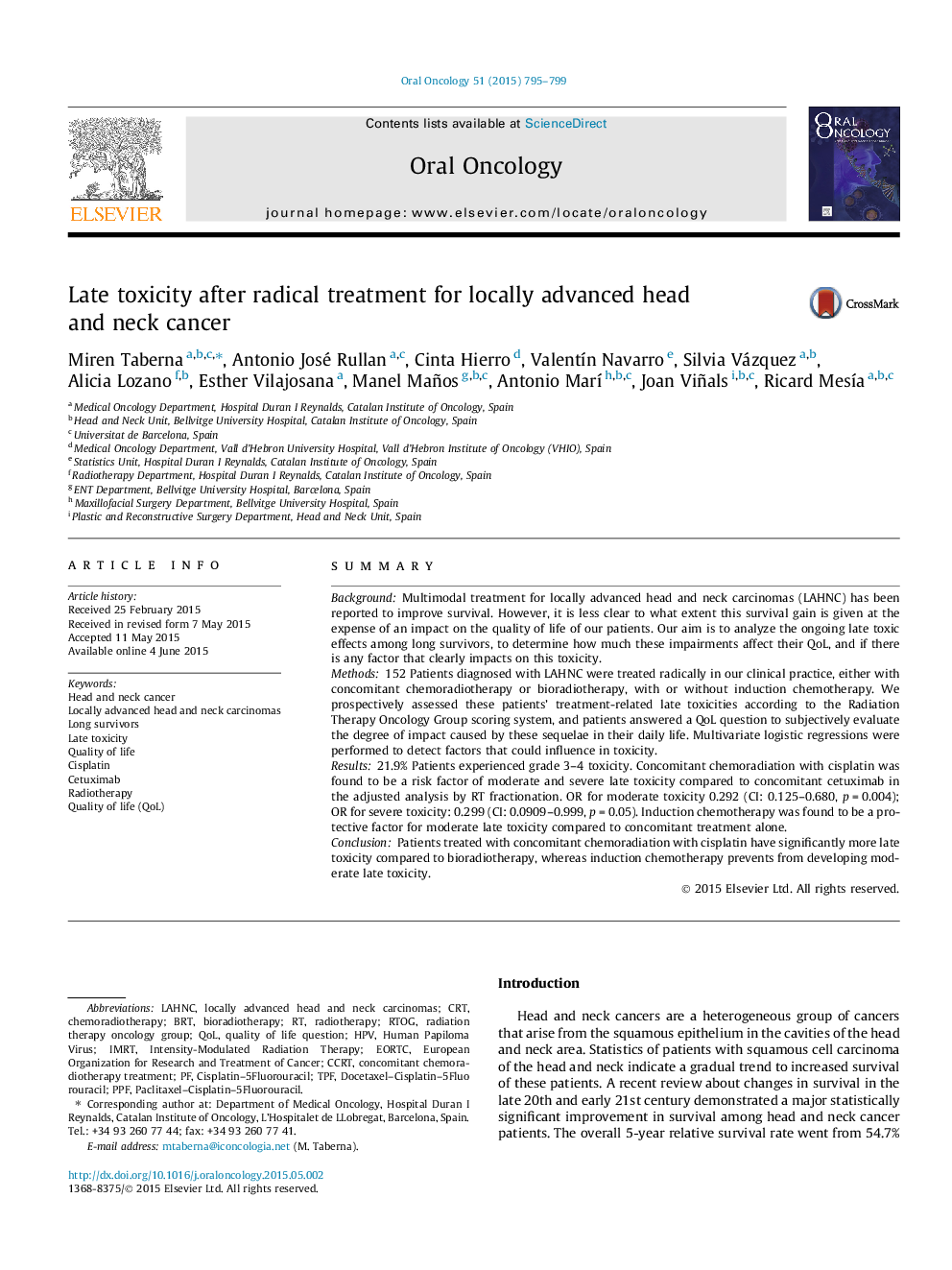| کد مقاله | کد نشریه | سال انتشار | مقاله انگلیسی | نسخه تمام متن |
|---|---|---|---|---|
| 3163986 | 1198760 | 2015 | 5 صفحه PDF | دانلود رایگان |
• Multimodal treatment for locally advance head and neck cancer improve survival.
• chemoradiation (cisplatin) produce more late toxicity compared to bioradiotherapy.
• Induction chemotherapy prevents for moderate late toxicity.
SummaryBackgroundMultimodal treatment for locally advanced head and neck carcinomas (LAHNC) has been reported to improve survival. However, it is less clear to what extent this survival gain is given at the expense of an impact on the quality of life of our patients. Our aim is to analyze the ongoing late toxic effects among long survivors, to determine how much these impairments affect their QoL, and if there is any factor that clearly impacts on this toxicity.Methods152 Patients diagnosed with LAHNC were treated radically in our clinical practice, either with concomitant chemoradiotherapy or bioradiotherapy, with or without induction chemotherapy. We prospectively assessed these patients’ treatment-related late toxicities according to the Radiation Therapy Oncology Group scoring system, and patients answered a QoL question to subjectively evaluate the degree of impact caused by these sequelae in their daily life. Multivariate logistic regressions were performed to detect factors that could influence in toxicity.Results21.9% Patients experienced grade 3–4 toxicity. Concomitant chemoradiation with cisplatin was found to be a risk factor of moderate and severe late toxicity compared to concomitant cetuximab in the adjusted analysis by RT fractionation. OR for moderate toxicity 0.292 (CI: 0.125–0.680, p = 0.004); OR for severe toxicity: 0.299 (CI: 0.0909–0.999, p = 0.05). Induction chemotherapy was found to be a protective factor for moderate late toxicity compared to concomitant treatment alone.ConclusionPatients treated with concomitant chemoradiation with cisplatin have significantly more late toxicity compared to bioradiotherapy, whereas induction chemotherapy prevents from developing moderate late toxicity.
Journal: Oral Oncology - Volume 51, Issue 8, August 2015, Pages 795–799
